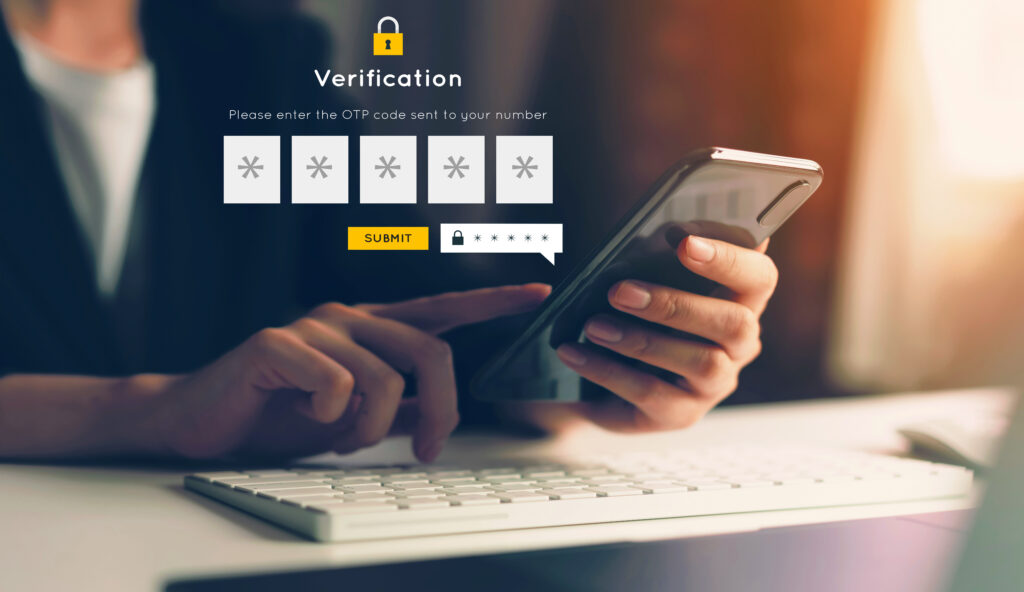Building Trust Through Security: Enhancing User Confidence in Your Mobile App
In a world where mobile apps are practically running our lives — helping us track our steps, balance our bank accounts, and shop for things we didn’t know we needed — the whole “trusting the app” thing has never been more important.
Every day, we happily hand over personal (and sometimes way too personal) information to fitness trackers, banking apps, and online stores. And with all the news about data breaches, privacy scandals, and cyberattacks, it’s not a total surprise that users are starting to wonder where their data is really going.
Why Is Security So Important for Mobile Apps?

Mobile app security is a critical concern with serious consequences. Around 50% of apps with 5 to 10 million downloads have identifiable security flaws. As apps increasingly hold sensitive information like personal details, payment methods, and location data, the dangers of data breaches, identity theft, and unauthorized access are becoming a growing threat. This makes security not just a technical necessity but a foundational element of your app’s credibility.
For developers and businesses, focusing on security goes beyond protecting data — it’s about building enduring connections with users, earning their confidence, and enhancing your brand’s integrity. Trust is essential to a positive user experience; without it, even the best-designed apps risk losing their impact and user loyalty. But how can you ensure that your app is secure enough to foster this trust?
The key is adopting robust security practices that not only safeguard user data but also reassure them that their information is secure and well-managed. This is where security becomes more than a technical necessity — it becomes a competitive differentiator. Users are more inclined to trust and keep using apps that put a strong emphasis on protecting their privacy and security.
But how can you enhance mobile app security while also making your app user-friendly? Let’s explore some strategies.
Use Strong Encryption Protocols
Encryption is a key building block of securing mobile apps. It ensures that the data transferred between the app and its servers remains unreadable to anyone who might intercept it. Without encryption, your usernames, passwords, and payment details are like leaving your front door wide open with a “Hackers Welcome” sign.
Use SSL/TLS encryption to secure every data transaction, from logins and purchases to form submissions. For apps managing sensitive information, ensure end-to-end encryption is in place to protect data throughout the entire process. If users can trust that their data is being securely transmitted, it significantly boosts their confidence in your app.
Implement Two-Factor Authentication

Two-factor authentication (2FA) is like putting a padlock on your password — just to be extra sure no one’s getting in! First, you enter your password, and then you prove it’s really you with another method — like a one-time code sent to your phone, an app like Google Authenticator, or even a fingerprint or facial scan. It’s a simple way to boost security and keep things safe.
Multi-factor authentication is widely adopted by large organizations, with 87% of companies employing over 10,000 people implementing this essential security protocol.
While adding an extra step might seem like an inconvenience, it’s a powerful way to protect user accounts from unauthorized access. Making 2FA available, or better yet, requiring it for sensitive tasks like transferring funds or updating account details, will help users feel confident that their accounts are secure and their data is safe.
Secure User Data Storage

Where and how you store user data is another critical factor in ensuring mobile app security. Keeping sensitive data like credit card information or PINs unencrypted is like handing hackers an invitation to your data.
Make sure to store passwords securely using advanced hashing algorithms like bcrypt, and avoid storing sensitive information unless absolutely necessary. Implement strict data retention policies, where sensitive data is automatically deleted after a certain period, or anonymized if long-term storage is needed for analytics.
In addition, make sure to follow relevant laws and guidelines like GDPR or CCPA to not only safeguard user data but also honor their privacy rights.
Regular Security Audits and Penetration Testing
No app is completely immune to attacks, and security vulnerabilities can crop up unexpectedly. Regular security audits are vital for identifying and addressing potential risks before they can be exploited. Consider conducting penetration testing (ethical hacking) to simulate how a malicious actor might try to exploit weaknesses in your app’s security.
Spotting and fixing vulnerabilities early helps keep your app strong and ready to tackle new security challenges as they arise. Keep your app’s security features updated to combat newly discovered exploits, and provide regular updates to your users, showing that you’re serious about keeping their data safe.
Transparency and Clear Privacy Policies
Trust is not built in a vacuum — it thrives in transparency. Users need to feel confident that their data is being handled responsibly. What could be the best way to earn trust with your app? Just keep it simple with a privacy policy that actually explains what data you’re collecting, how you’re using it, and who you’re sharing it with — no shady business, just the facts!
Avoid legal jargon in your privacy policy, and make it easily accessible within the app. It’s important to be transparent with users about any data-sharing practices, like working with third-party services. Letting users opt out of certain data collection methods is like handing them the remote control for their own privacy — suddenly, they’re in charge and feeling way more confident about what’s happening behind the scenes!
Secure Third-Party Integrations
Many mobile apps depend on external services for things like payment handling, data analysis, social media logins, and other key features. While these services can provide great features, they also introduce potential security risks. It’s essential to vet and regularly review any third-party services your app integrates with.
Ensure that these partners comply with industry standards for security and data protection. Using reputable services and establishing clear contractual agreements about security practices can prevent vulnerabilities in your app’s overall security infrastructure.
User Education and Awareness
Giving users the know-how to safeguard their data is a vital yet frequently forgotten aspect of mobile app security. Include security tips within the app that educate users on the importance of strong passwords, not sharing login credentials, and recognizing phishing attempts.
Keep users informed about changes to their account settings or unusual login activities, such as access from a new device or location, enabling them to act swiftly if something seems off. Providing these tools shows your commitment to their security, which will ultimately build trust.
Respond Quickly to Security Incidents
Even the strongest mobile app security can’t guarantee zero breaches. What truly counts is your response. Prepare a clear incident response plan that prioritizes promptly notifying affected users, investigating the breach’s root cause, and taking corrective action to resolve the problem.
Transparency is key during these situations. Users appreciate honesty, and a proactive approach to handling security incidents can strengthen their trust in your brand, especially if you handle the situation swiftly and professionally.
Adhering to Data Protection Laws
Beyond implementing strong internal security measures, make sure your app adheres to applicable data protection laws, like GDPR for users in Europe or CCPA for residents of California.
Complying with these regulations helps you dodge hefty fines while demonstrating to users that you value their privacy and uphold industry standards.
Final Thoughts: Security is the Key to Building Long-Term Trust
Building trust through security is an ongoing process that requires a commitment to safeguarding user data, maintaining transparency, and staying ahead of potential threats. Following these regulations not only protects you from fines but also reassures users that their privacy is a priority and that you uphold trusted industry practices.
Trusting that their personal data is secure encourages users to engage more with your app, spread the word, and stay loyal. Ultimately, trust is not only a key factor in protecting your users — it’s also essential for your app’s success in a highly competitive market.
So, take the time to prioritize security in your mobile app. By doing so, you’ll earn your users’ gratitude and build an even stronger reputation.









